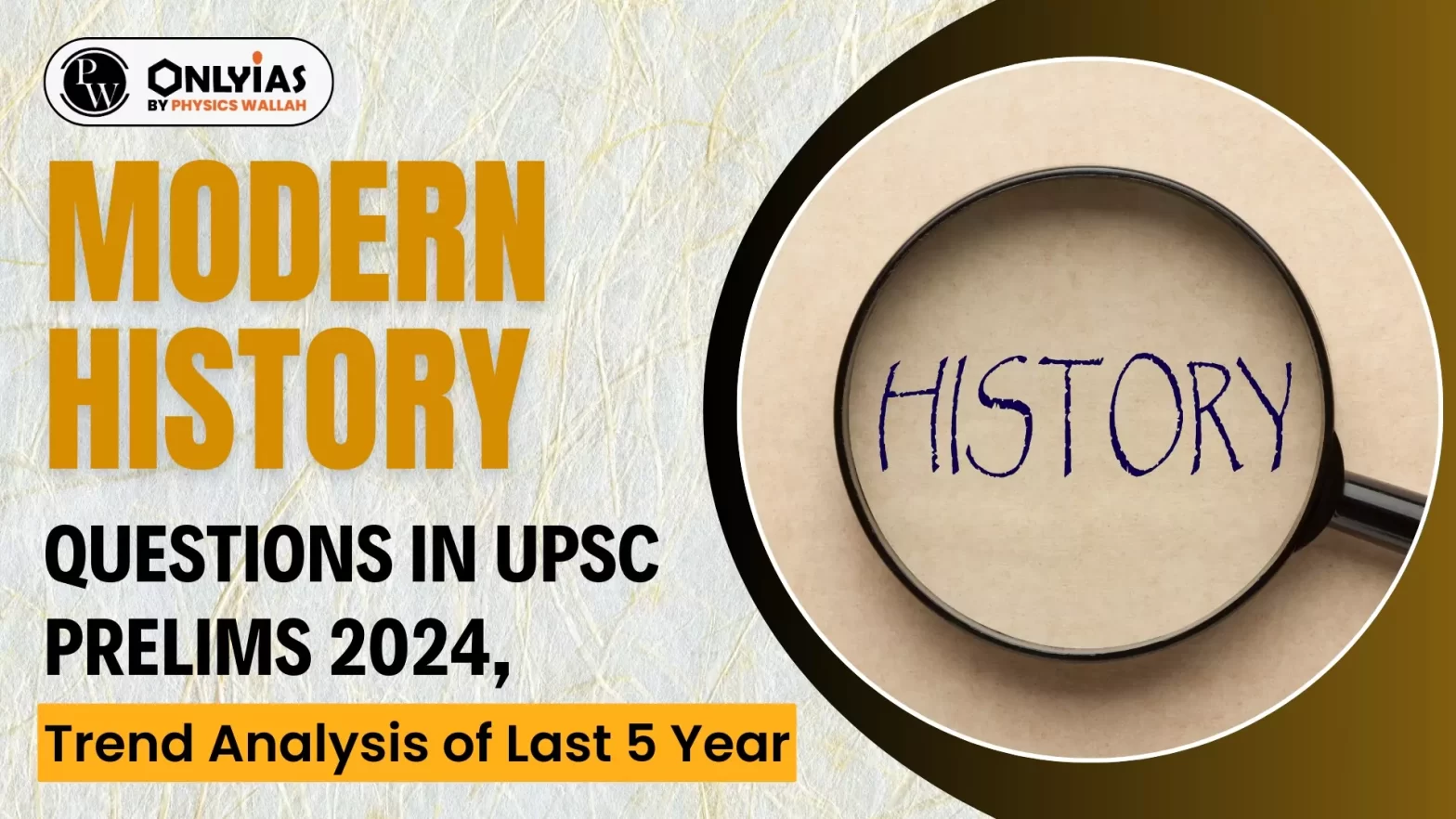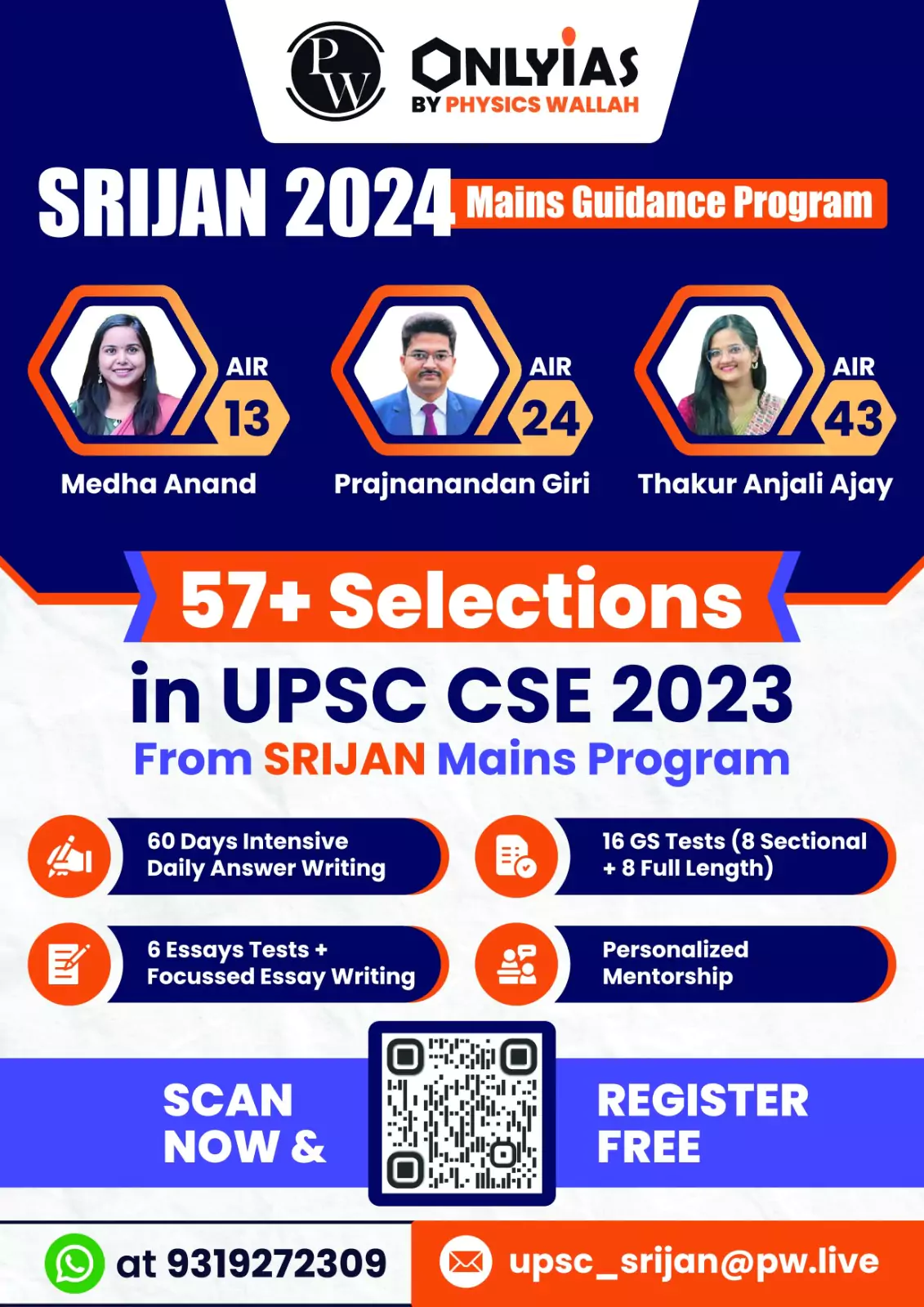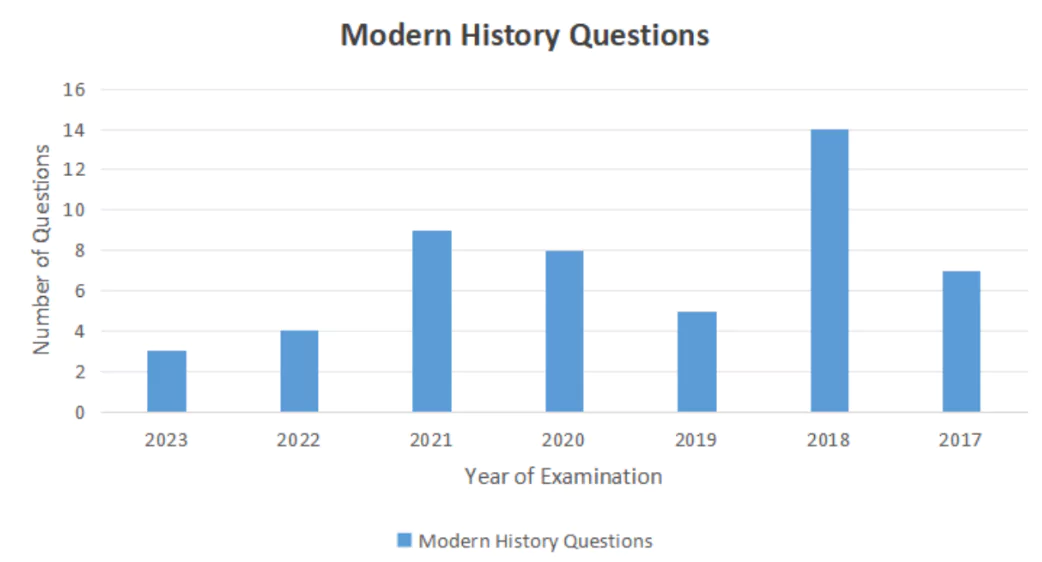Get the Modern history questions in UPSC prelims 2024. Modern history questions in UPSC prelims 2024 will help to decode changing trends in UPSC prelims exam.

Modern history questions in UPSC prelims have been witnessing a downward trend due to the changing mindset of the examiner. Nevertheless, modern history is an important topic that must be studied in detail.
| Download UPSC Prelims Question Paper 2024 | |
| UPSC Prelims GS Paper I | Download Link |
| UPSC Prelims GS Paper II CSAT | Question Paper Download Link |
| Answer Key 2024 | GS Paper (01) Answer Key 2024 CSAT Paper Answer Key 2024 |
| DetaIled Answer Key 2024 | GS Paper (01) Answer Key 2024 CSAT Paper Answer Key 2024 |
Modern history questions in UPSC prelims will focus on the period after the emergence of European colonialists in India. It will cover topics such as Indian renaissance, British governance, independence movement etc. The nature of modern history questions in UPSC prelims will range from factual to analytical, making it a challenge for aspirants to attempt them. By analyzing past year questions, we can find out the topics that can be asked.
Let us have a look at the Modern History Questions in UPSC Prelims 2024, along with the trends of the themes from the Previous years questions. The Trend Analysis of the Last five years Modern History Questions in UPSC Prelims is also given here.
The table below contains the Modern History Questions in UPSC Prelims 2024 with Answers:
| Modern History Questions in UPSC Prelims 2024 with Answers | ||
| Serial No. | Question | Answer |
| 1 | With reference to the Government of India Act, 1935, consider the following statements:
Which of the statements given above is/are correct? (a) 1 only (b) 2 only (c) Both 1 and 2 (d) Neither 1 nor 2 |
(a) 1 only |
| 2 | With reference to revenue collection by Cornwallis, consider the following statements:
Which of the statements given above is/are correct? (a) 1 only (b) 2 only (c) Both 1 and 2 (d) Neither 1 nor 2 |
(b) 2 only |
Modern History Questions in UPSC Prelims 2024 can be anticipated a little by seeing the Modern History Questions of UPSC Prelims 2023 and other previous years. Compared to previous years, UPSC asked fewer modern history questions in UPSC prelims. However, we can still identify important themes from these questions. The list of modern history questions in prelims 2023 is given below.
1) By which one of the following Acts was the Governor General of Bengal designated as the Governor General of India?
(a) The Regulating Act
(b) The Pitt’s India Act
(c) The Charter Act of 1793
(d) The Charter Act of 1833
Answer: (d)
2) Consider the following statements:
Statement I: 7th August is declared as the National Handloom Day.
Statement II: It was in 1905 that the Swadeshi Movement was launched on the same day.
Which one of the following is correct in respect of the above statements?
(a) Both Statement I and Statement II are correct and Statement II is the correct explanation for Statement I.
(b) Both Statement I and Statement II are correct and Statement II is not the correct explanation for Statement I.
(c) Statement I is correct but Statement II is incorrect.
(d) Statement I is incorrect but Statement II is correct.
Answer: (a)
3) With reference to Indian History, Alexander Rea, A. H. Longhurst, Robert Sewell, James Burgess and Walter Elliot were associated with
(a) Archaeological excavations
(b) Establishment of English Press in Colonial India
(c) Establishment of Churches in Princely States
(d) Construction of railways in Colonial India
Answer: (a)

UPSC has been unpredictable when it comes to the number of modern history questions in UPSC prelims. From a high of 14 questions in 2018 to 3 questions in 2023, UPSC has been changing the trend. A detailed analysis of a number of modern history questions are given below.
| Year of Examination | Number of Questions |
| 2023 | 3 |
| 2022 | 4 |
| 2021 | 9 |
| 2020 | 8 |
| 2019 | 5 |
| 2018 | 14 |
| 2017 | 7 |

Every candidate needs to understand the Modern History Questions in UPSC Prelims in the previous years to prepare the Modern History Questions in UPSC Prelims 2024. Modern history is a challenging topic. It involves factual information as well as analytical information that candidates must process to arrive at a conclusion. Tips to prepare for modern history questions in UPSC prelims is given below:
UPSC may have reduced the number of questions asked from modern history, but the themes have been repetitive. By analyzing questions from the past few years, we can arrive at a conclusion as given below.
| Themes | Significance |
| Freedom Movement | 2-3 questions from Gandhian period |
| Advent of Europeans | 1-2 questions from pre-Independence period |
| Tribal and Peasant revolts | 1-2 questions |
| Personalities from Freedom and Renaissance movement | 1-2 questions |
| Constitution Development | 1-2 questions |
| British Imperialism | 1-2 questions |
Modern history topics have some vital themes that need to be focused. Following are some questions from modern history repeated themes asked in UPSC prelims.
Famous Personalities
Q. Mahatma Gandhi undertook fast unto death in 1932, mainly because: (2012)
(a) Round Table Conference failed to satisfy Indian political aspirations.
(b) Congress and Muslim League had differences of opinion.
(c) Ramsay MacDonald announced the Communal Award.
(d) None of the statements (a), (b) and (c) given above is correct in this context.
Constitution Development
Q. With reference to the proposals of Cripps Mission, consider the following statements:
Which of the statements given above is/are correct? (2022)
(a) 1 only
(b) 2 only
(c) Both 1 and 2
(d) Neither 1 nor 2
Advent of Europeans
Q. With reference to Indian history, consider the following statements:
Which of the statements given above are correct? (2021)
(a) 1 and 2 only
(b) 2 and 3 only
(c) 1 and 3 only
(d) 1, 2 and 3
British Colonization
Q. Which of the following statements correctly explain the impact of the Industrial Revolution on India during the first half of the nineteenth century? (2020)
(a) Indian handicrafts were ruined.
(b) Machines were introduced in the Indian textile industry in large numbers.
(c) Railway lines were laid in many parts of the country.
(d) Heavy duties were imposed on the imports of British manufactures.
Independence Movement
Q. With reference to Indian freedom struggle, consider the following events:
What is the correct chronological sequence of the above events? (2017)
(a) 1-2-3
(b) 2-1-3
(c) 3-2-1
(d) 3-1-2
Worried about UPSC 2025? Boost your score by enrolling in the top courses from Physics Wallah! Join now!
UPSC asks 3-15 questions from modern history in the prelims exam. The weightage may not be the same every year.
Yes. UPSC has asked questions directly from NCERT books. Most of the Modern History Questions in UPSC Prelims are based on the facts and data from the NCERT books.
Yes. UPSC gives special focus to certain themes in modern history and repeatedly asks questions about them. These themes can be identified in PYQs.
UPSC asks questions ranging from moderate to difficult level in UPSC prelims exam. Although, it may vary from individual to individual according to the preparation level in how they see the Modern History Questions in UPSC Prelims.
Themes such as the independence movement, personalities, British imperialism, Constitution development, etc. are important themes for prelims.
<div class="new-fform">
</div>
